The sight of water leaking from beneath your vehicle can be alarming if you're a new driver or have never seen it before. Don't worry, we've done our research so that you'll be prepared and know what to do if you ever find yourself in a similar situation.
You must first confirm that water is the leaking substance before getting to the root of the problem and resolving the leak. There is no need to be concerned when the water leak comes from the air conditioning (AC) system and exhaust because it’s normal. When it comes from the washer bottle, replace it.
After reading this, you'll know why your car is leaking water and what you should do next. Also, you will be able to recognize some other kinds of leaks other than water. To get started, keep reading!
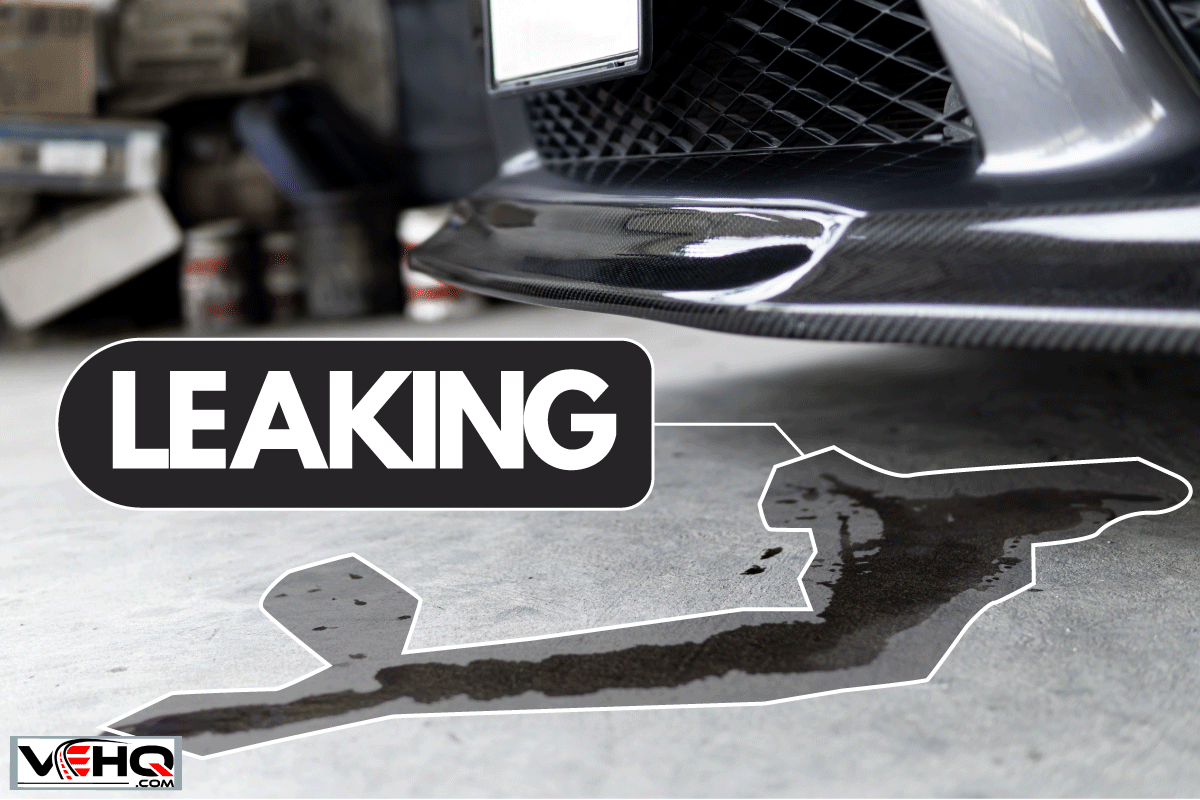
Why Does My Car Leak Water When Parked?
When your car is leaking water, you'll want to get to the bottom of the problem as soon as possible. Below will discuss the root causes of water leakages in your car.
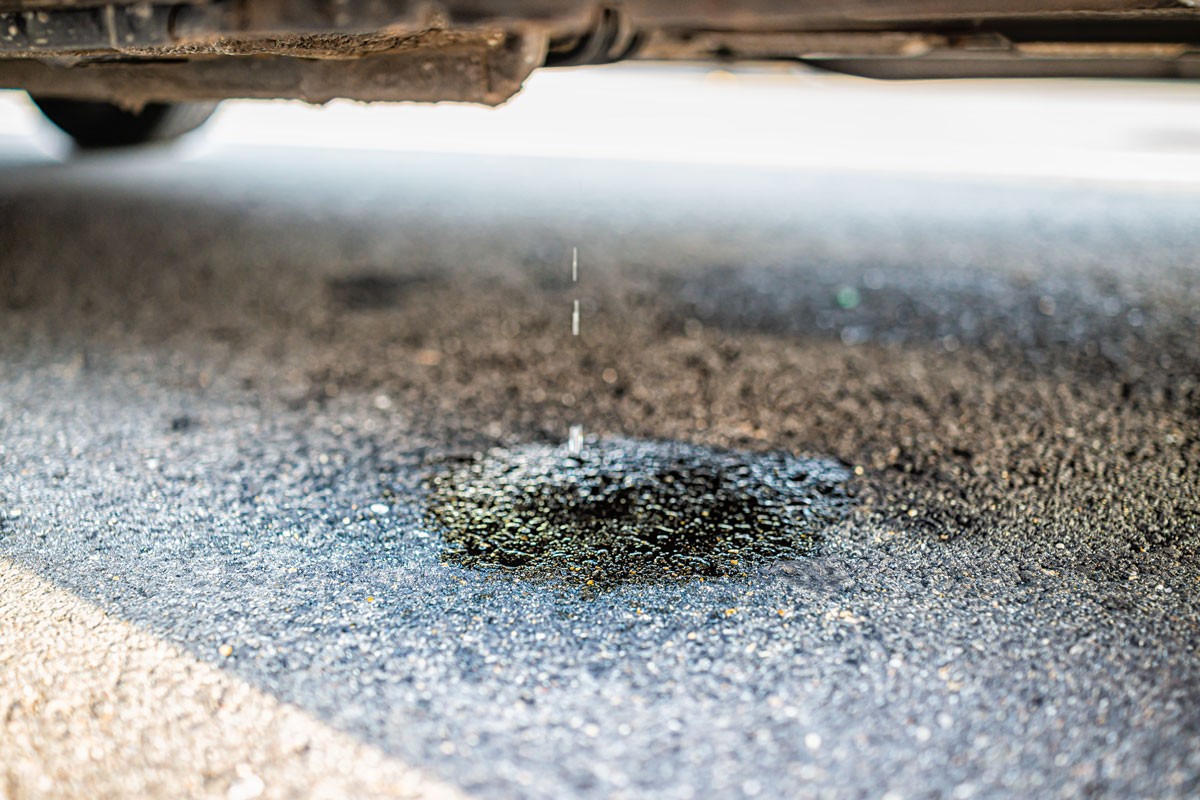
Air Conditioner
Water leaking into cars is frequently caused by the AC. The car AC may be leaking water on the floor or elsewhere. When moisture in the air collects on the parts of your air conditioning unit, it can cause your car AC to leak water. The moisture will collect near the engine's rear and drip down.
Aside from exterior leaking, your car may also leak water inside due to these air conditioning problems:
- Clogged Drain. Water will not be able to flow through your evaporator drain if it is clogged. The water will back up and drain into your cabin as a result of this. The clog could be caused by dirt, debris, or other materials.
- Seal Problems. Your car's AC unit is made up of several seals. Water can slowly leak into your cabin if these seals are old or broken.
- Evaporator Core Problems. Debris can get inside your evaporator core, though it's not very common. This debris can turn into a corrosive material during the condensation process, causing your evaporator core to rust.
These cases can result in a musty odor, indicating that water is leaking into the passenger side floor or another area, or a sudden deluge of water.
Exhaust
The exhaust could also be the cause of your car leaking water underneath. When you turn off your car after a long drive, the exhaust begins to cool. Moisture in the air condenses as a result of the cooling, forming tiny puddles within the exhaust piping.
When you start the car again in the morning, for example, the condensed water evaporates before condensing on the cold tailpipe. As a result, water drips from the exhaust pipe's end. This phenomenon is frequently accompanied by steam coming from the exhaust, which is often mistaken for white smoke.
Windshield Wiper
A leak could also be caused by a cracked windshield wiper fluid reservoir. If water gets into your windshield wiper fluid and freezes, the reservoir can crack and spill the fluid onto the ground. The fluid will be light blue or light green in these cases, and it will pool around your front tires.
Physical Damage
Of course, your car's leaking water underneath could also be due to physical damage such as a hole in the exhaust. It's also possible that a small water patch will form beneath a hole in the exhaust. When an exhaust system fails, rust or physical damage causes a small hole in the metal to form.
When your exhaust is blowing, you can hear it because it makes a different sound – a throaty, raspy sound. Puddles of water that form within the piping could theoretically drip out of any significant holes rather than the tailpipe.
Car Leaking Water When Parked - What To Do?
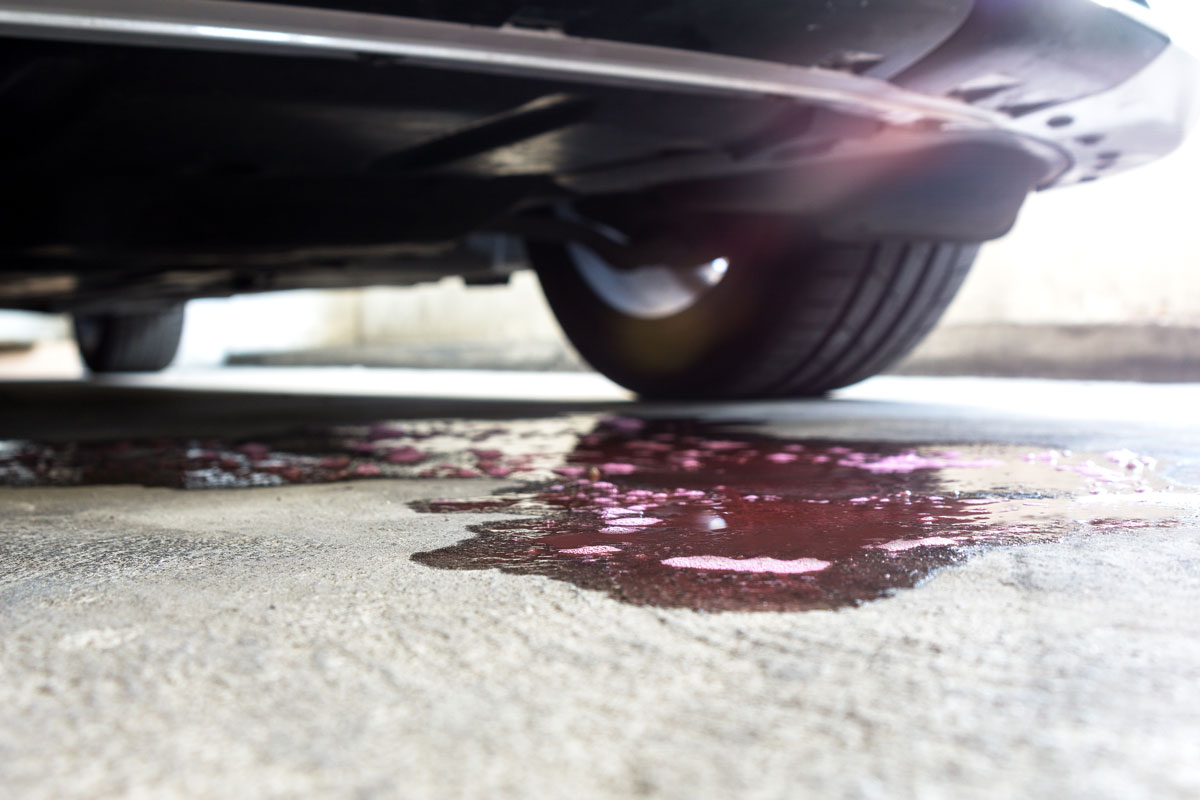
Once you've ruled out the aforementioned common causes, the first thing you need to do is to identify the color of the fluid. You need to be sure that it's water, not anything else.
To identify the color, you can use a white towel or paper and place it under the leak. If the fluid has no color, it's probably just water, and you shouldn't be alarmed. If the fluid appears to be blue, green, yellow, or another color, you should be concerned.
Next, identify where the water or leak came from. Once you find the spot, then do car maintenance if you are confident to do so.
When the leak is from the air conditioning unit, there is nothing to be concerned about. The water you see coming out of the car is an entirely natural part of how it works. In fact, when you don't see any water under your car, it's a bigger problem.
If the leak came from the windshield wiper reservoir or bottle, you may require a replacement part. It should be a fairly simple job, though the parts can be quite costly, so keep that in mind. You could always try to fix it, but you should expect the problem to resurface fairly frequently.
When it's from the exhaust pipe, there's nothing you can do unless it has a hole – a "blow" – in it. Small holes can be welded, but you'll need a replacement part eventually.
What Color is Each Car Fluid?
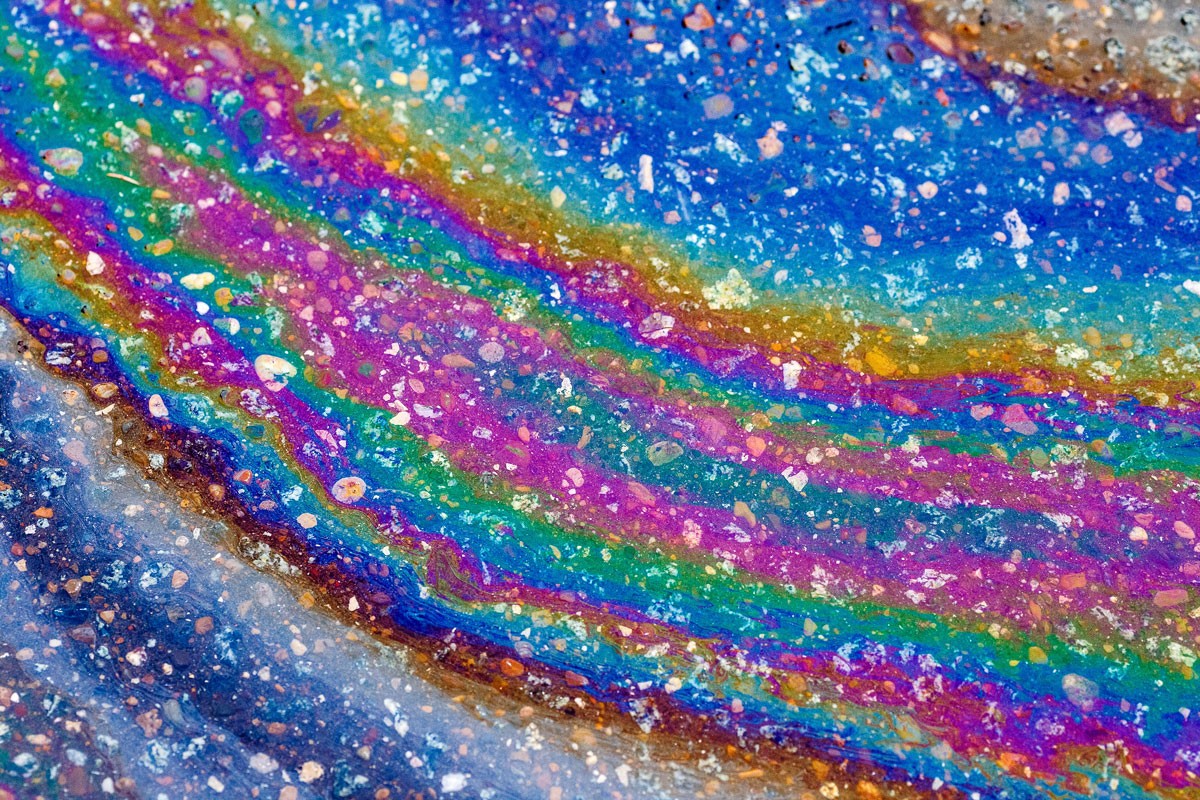
When trying to figure out why your car is leaking, color can be a useful indicator. It's not water if the fluid leaking from your car isn't clear. To identify car fluids based on color, look at the list below:
- Water: Clear
- Engine Oil: Light brown to black
- Transmission Fluid: Red or brown
- Brake Fluid: Transparent yellow to brown
- Antifreeze/Coolant: Green, pink or yellow
- Power Steering Fluid: Red or brown
Other Kinds of Leaks and Their Causes
Following are the kinds and possible causes of leaks:
Engine Oil
An engine oil leak is one of the most common problems that a car may face. There are several reasons why a car may be leaking engine oil, and they are:
- Worn-out engine gasket
- Hole in the oil pan
- Broken or corroded oil seal
- Worn out oil filter
- Missing or broken filler cap
- Valve gasket's connection is poor
Engine oil leaks can be avoided with regular maintenance and regular oil change. It's also crucial to purchase high-quality, name-brand oil from a reputable supplier. Choose synthetic oil if possible. If you notice the car is leaking engine oil, you can usually drive it to the mechanic without needing a tow truck.
Transmission Fluid
When your car is parked, the transmission fluid leak is usually visible on the ground in the middle of the vehicle. After a transmission fluid change, keep an eye on your vehicle in case the auto shop made a mistake. However, this isn't the only reason why a car might leak this fluid. Transmission fluid leaks can be caused by a variety of factors, including:
- Cracked pan gasket
- Roadside debris
- Torque converter problem
- Pan isn't properly secured after a transmission fluid change
If you drive with a transmission fluid leak in your system, you risk permanently damaging your car's transmission, requiring costly repairs or replacements.
Brake Fluid
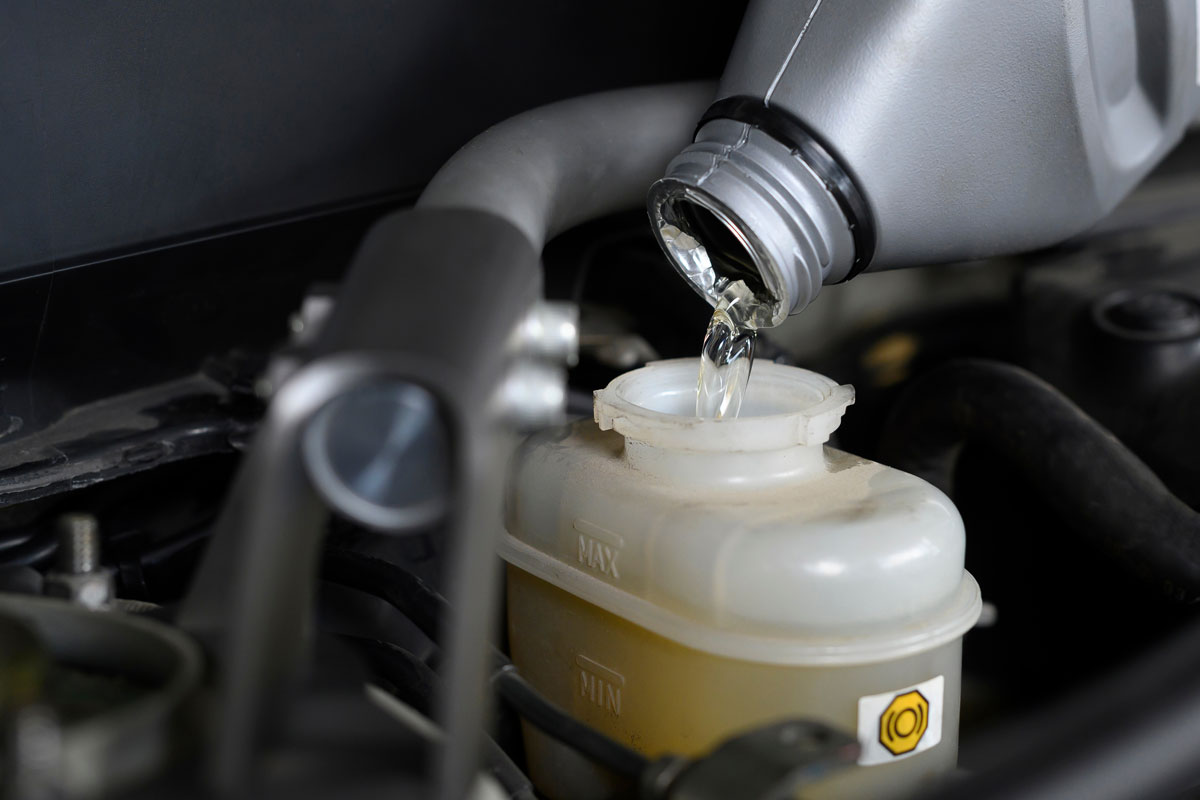
It has a thin, oily texture and is frequently found near the vehicle's wheels or passenger side. A brake fluid leak is extremely dangerous and requires immediate attention. The following are some of the most common causes of brake fluid leakage in cars:
- There could be a leak in one of the brake calipers, rubber hoses, master cylinders or wheel cylinders
- Caliper seal failure due to worn brake pads or shoes
- Bleeder valves that aren't tight enough
You should stop driving and call a tow truck if you have a brake fluid leak. If the brake pedals feel strange when pressed, the brake pedal goes down too far, you see visible fluid coming out, or your car has difficulty stopping, you should take it to a mechanic.
Antifreeze or Coolant
This is a moderate to a severe problem that needs to be addressed right away. Antifreeze leaks can be caused by a variety of factors, including:
- Your coolant and engine oil may mix or leak outside if you have a blown head gasket
- Corroded radiator tube
- Hole in the radiator
- Road debris
- Wear and tear of sealing gasket
- Hardened and brittle hose
These leaks should be repaired as soon as possible because they tend to get worse quickly.
Power Steering
A power steering leak is another dangerous fluid leak to leave unattended. Typically, the drip is thin. A power steering leak can be caused by several factors, including:
- O-rings and seals in your car lose mass and form as they age
- If the o-rings disintegrate into chunks that circulate in the fluid as a result of mileage
Power steering leaks are more likely to occur if your car has a lot of miles on it or is older. If you're having trouble turning the wheel while driving, you might have a power steering leak. This is due to insufficient pressure in the power steering fluid.
When you turn the wheel, your vehicle should make little noise. Power steering leaks must be addressed as soon as possible to avoid further damage.
Final Thoughts
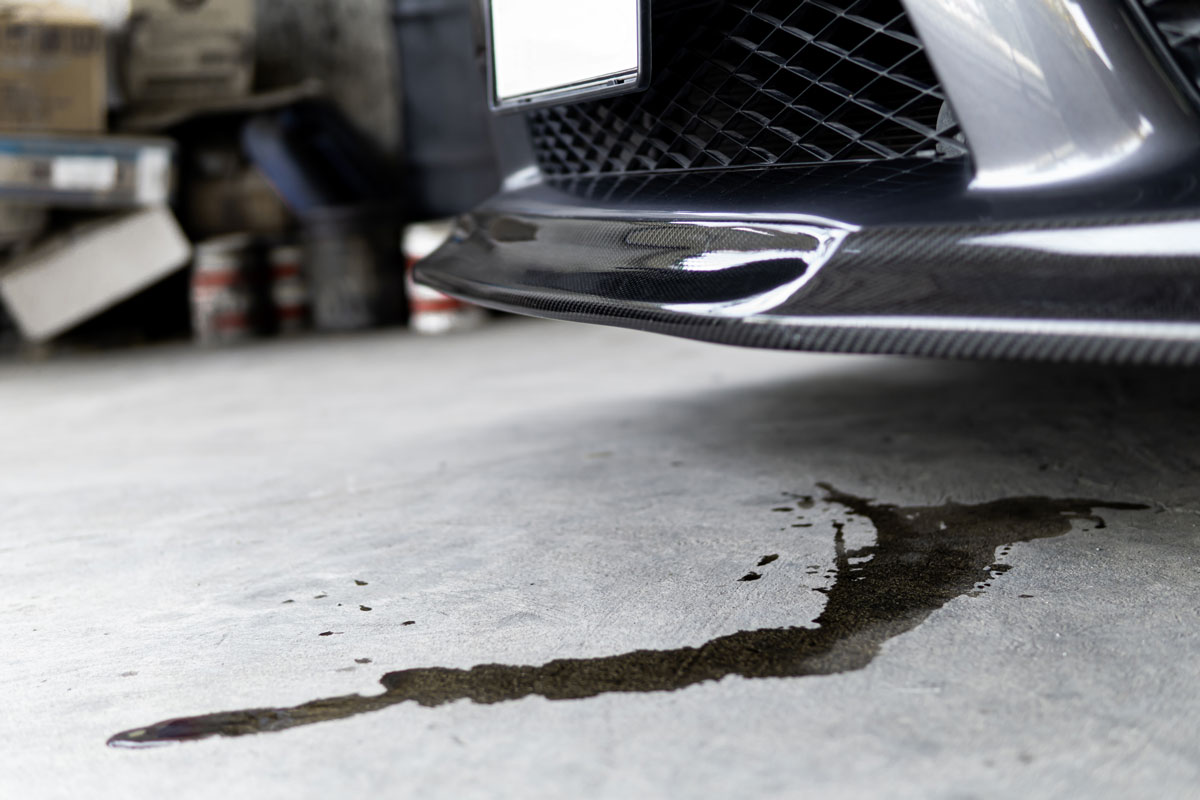
Water leaking from a car is a common issue that every car owner will encounter at some point. There could be a variety of reasons for this, and understanding the root cause is important to save the entire vehicle. Ignoring car leaks can have negative consequences for other parts of the vehicle, including upholstery.
Car leaks can be a sign of a much larger issue with your vehicle. You can sometimes fix it yourself, and other times you will need professional assistance.
For more valuable information, check out these articles:
Can A Bad Car Battery Cause Computer Problems?
Car Heater Not Working – What Could Be Wrong?
